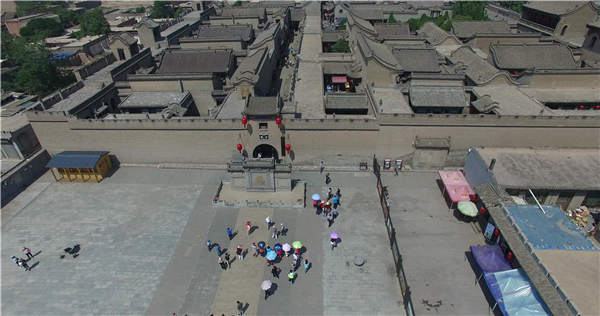On a green carpet through time
Helping to keep the wheels of commerce turning in those days in the city was the Rishengchang Exchange Shop, regarded as China's first bank to use drafts, or paper-based cash instead of metal currencies.
These days the Rishengchang shop is the Piaohao Museum, which has areas showing different functions such as a business hall, a VIP room, an accounts office and staff living quarters.
During the Ming (1368-1644) and Qing dynasties, merchants from Shanxi traveled all over China trading goods, and even plied their wares in Siberia.
While Pingyao provides an insight into the lives of merchants renowned for their diligence in trading tea, salt and other commodities, in Qiao's Grand Courtyard, about 50 km north of Pingyao, you can get a close look at the life of a merchant who became immensely wealthy as a result of his dealings.
The residence of the famous Qiao merchant family in the Qing Dynasty was first built during the reign of Emperor Qianlong (1736-95), by its first owner Qiao Guifa, an orphan who made good by trading in major Chinese cities, starting by selling tofu.
The residence was reconstructed twice and expanded into a grand piece of architecture that has six smaller courtyards, a total of 313 rooms and an enclosure wall 10 meters high.















